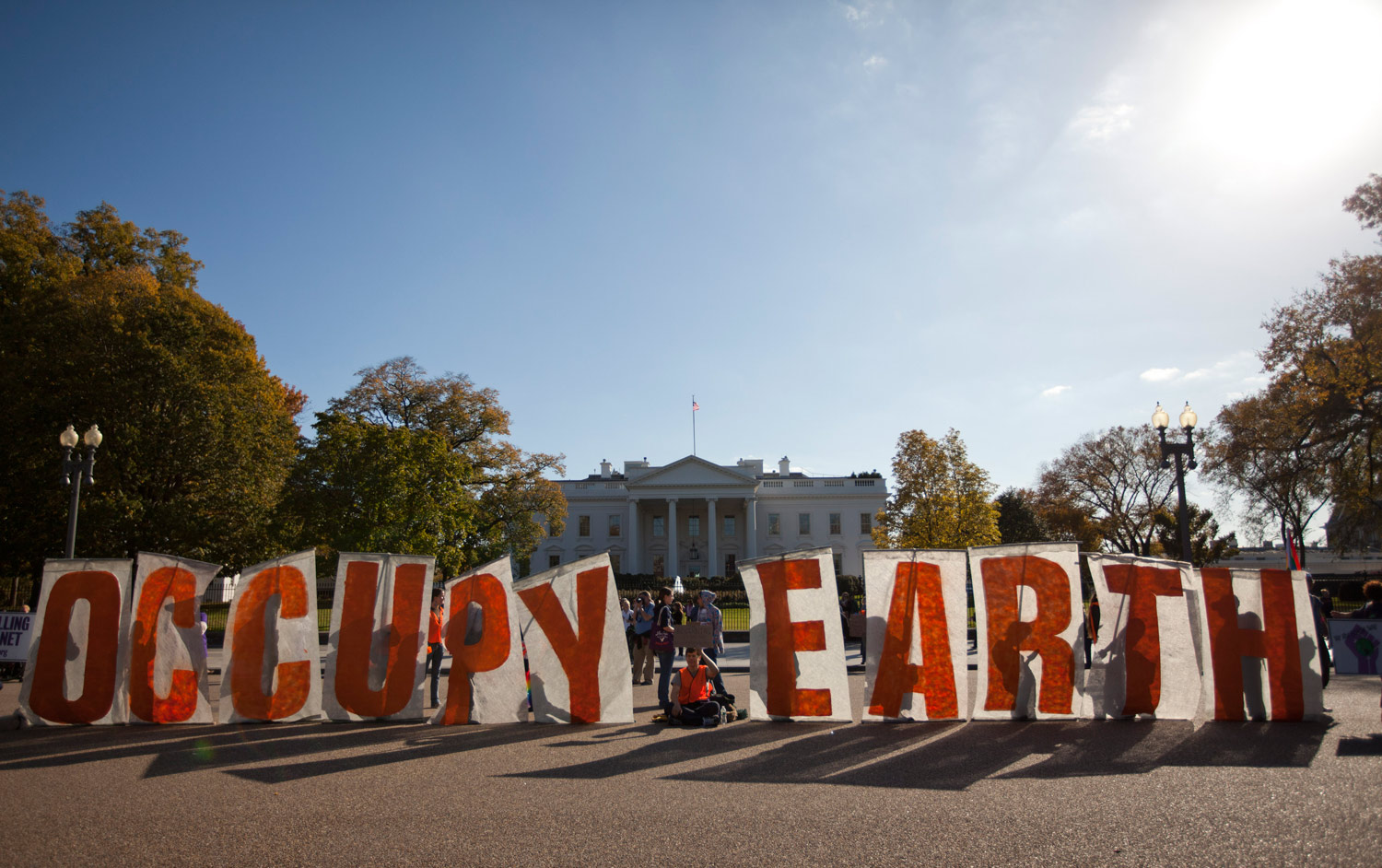
Here’s What Anyone Who Cares About the Planet Needs to Know About the EPA’s New Regulations Here’s What Anyone Who Cares About the Planet Needs to Know About the EPA’s New Regulations
The Obama administration’s new targets to reduce carbon emissions are a step in the right direction, but we need to demand much more.
Jun 4, 2014 / Mark Hertsgaard
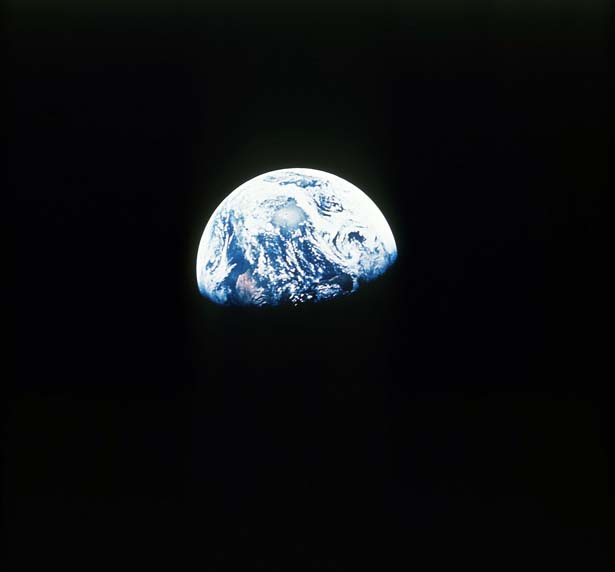
Everyone’s Climate Everyone’s Climate
Just in time for Earth Day came a fresh sign of the growing strength of the grassroots climate movement: the Obama administration announced on April 18 that it would delay yet again a decision on the Keystone XL pipeline, probably until after the November elections. Delay is not victory, and Big Oil and its friends in high places will continue to insist that the project go forward. But make no mistake: Keystone XL would have been approved years ago if a feisty popular movement of farmers in Nebraska, indigenous peoples in Canada and environmentalists across the United States had not marched, filed lawsuits, gotten arrested and otherwise opposed a pipeline that would bring to market some of the most carbon-intensive oil on earth. Delay gives activists more time to educate the public about this suicidal folly and above all to build an even larger, more cantankerous grassroots movement—which, as history suggests, is the key not only to defeating Keystone but to winning the larger battle for climate survival. Toward that end, The Nation marked Earth Day 2014 with wall-to-wall coverage of the climate challenge. Every piece of content we published online focused on climate change, and this issue features contributions from Christopher Hayes and Naomi Klein, who reflect on the challenges ahead, as well as a report by Dan Zegart on legal strategies for attacking the fossil fuel industry. “Nobody on this planet is going to be untouched by the impacts,” Rajendra Pachauri, chair of the UN Intergovernmental Panel on Climate Change, said on March 31, when releasing the latest scientific report on the suffering and economic disruption already being experienced. One reason the climate movement isn’t bigger is that many Americans still regard climate change as “just” an environmental issue. Progressive activists and organizations are only beginning to grasp how climate change will affect their concerns, from economic justice and immigration to human rights and foreign policy. It’s worth remembering the first Earth Day, in 1970, when 20 million Americans took to the streets to demand action, and to take action themselves: planting trees and gardens, educating voters and schoolchildren. This outpouring led President Nixon to create the Environmental Protection Agency and to sign laws that still provide, on paper, some of the strongest environmental protections on earth. Nixon did this, we now know from his aides’ memoirs, not because he cared about nature—the man wore wing tips to walk on the beach—but because he feared that an aroused populace could jeopardize his re-election. Please support our journalism. Get a digital subscription for just $9.50! Today’s climate movement has a surprising amount of good news to build on. Solar power is being adopted globally faster than cellphones once were. The world’s third-largest oil company, Royal Dutch Shell, has endorsed a tough cap on carbon emissions. A majority of Republicans under age 35 tell pollsters that denying climate science—a position their party’s representatives in Washington follow like lemmings—is “ignorant, out-of-touch, or crazy.” But congressional Republicans and Fox News aren’t the only ones who deny climate change. Many others engage in “soft denial”—refusing to face the climate crisis because it’s too disturbing. This is the dilemma we as a civilization now confront. Our scientists are warning that all we hold dear will perish if we continue on our current trajectory. But they also say we have the tools to turn away from death and build a brighter future. The hour is desperately late, but this choice is still ours to make. Read Next: Jeremy Brecher on jobs and the environment
Apr 23, 2014 / Mark Hertsgaard
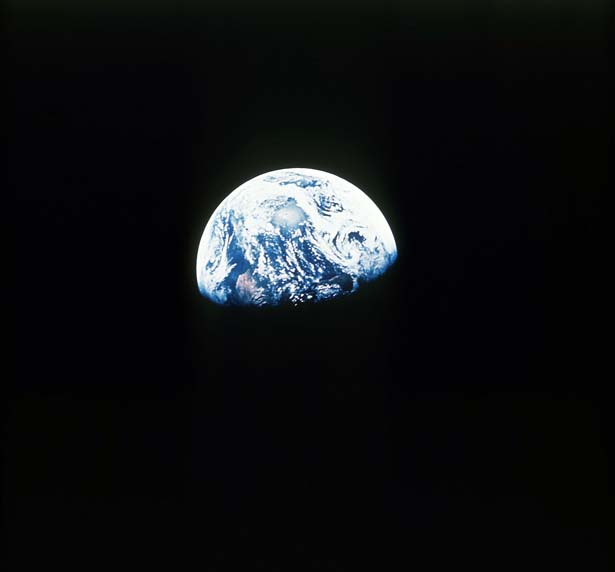
Why TheNation.com Today Is All About Climate Why TheNation.com Today Is All About Climate
To underline how climate change must become everyone’s issue, we asked writers on beats not usually concerned with extreme weather to weigh in.
Apr 22, 2014 / Mark Hertsgaard

If We Want to Adapt to Climate Change, We Need to Start Now If We Want to Adapt to Climate Change, We Need to Start Now
According to the IPCC’s latest report, global warming is already hurting people, especially the poor, and is bound to get worse in the years ahead.
Mar 31, 2014 / Mark Hertsgaard
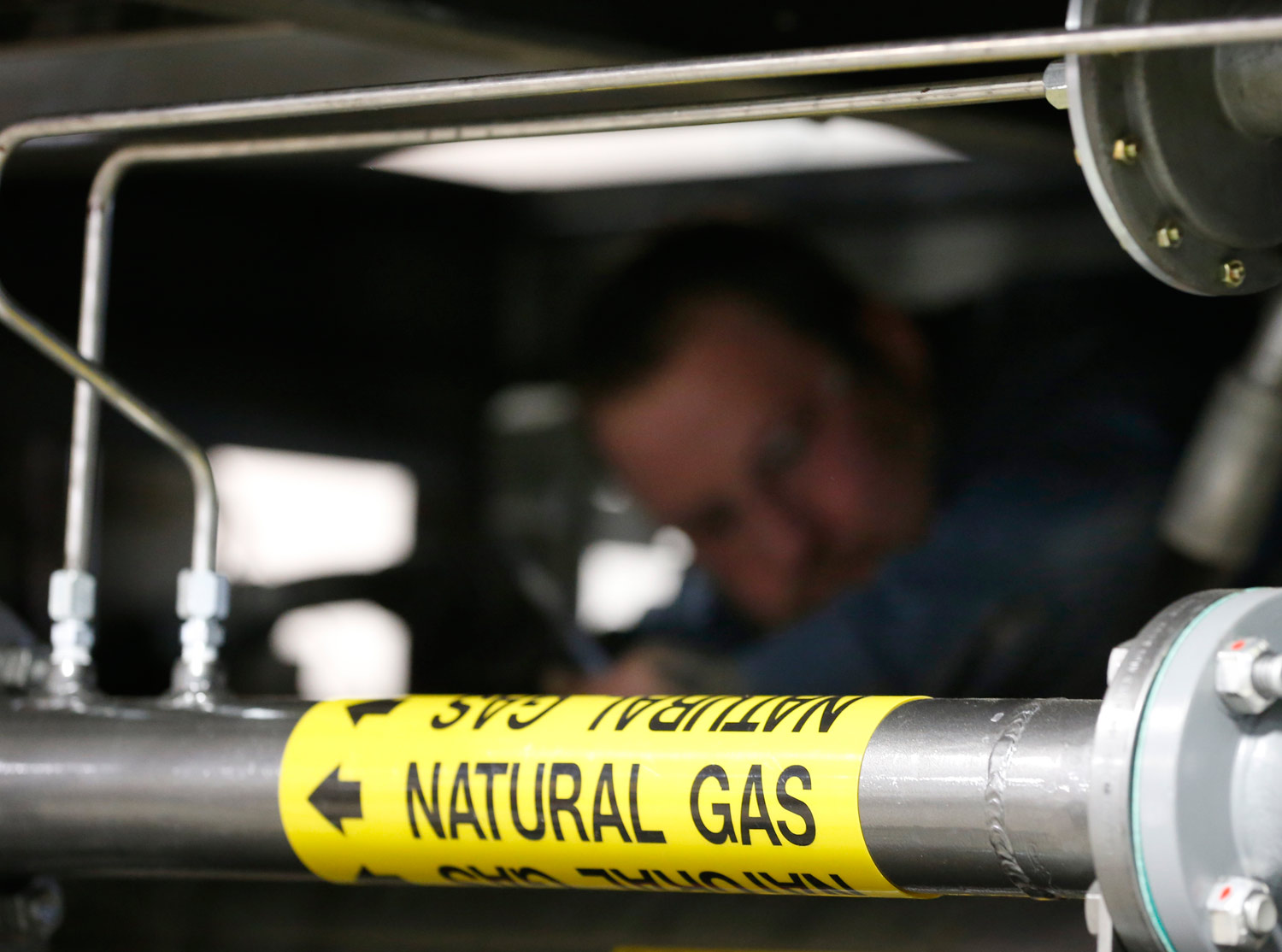
The Other Keystone The Other Keystone
It’s just as important to stop Cove Point.
Mar 19, 2014 / Mark Hertsgaard
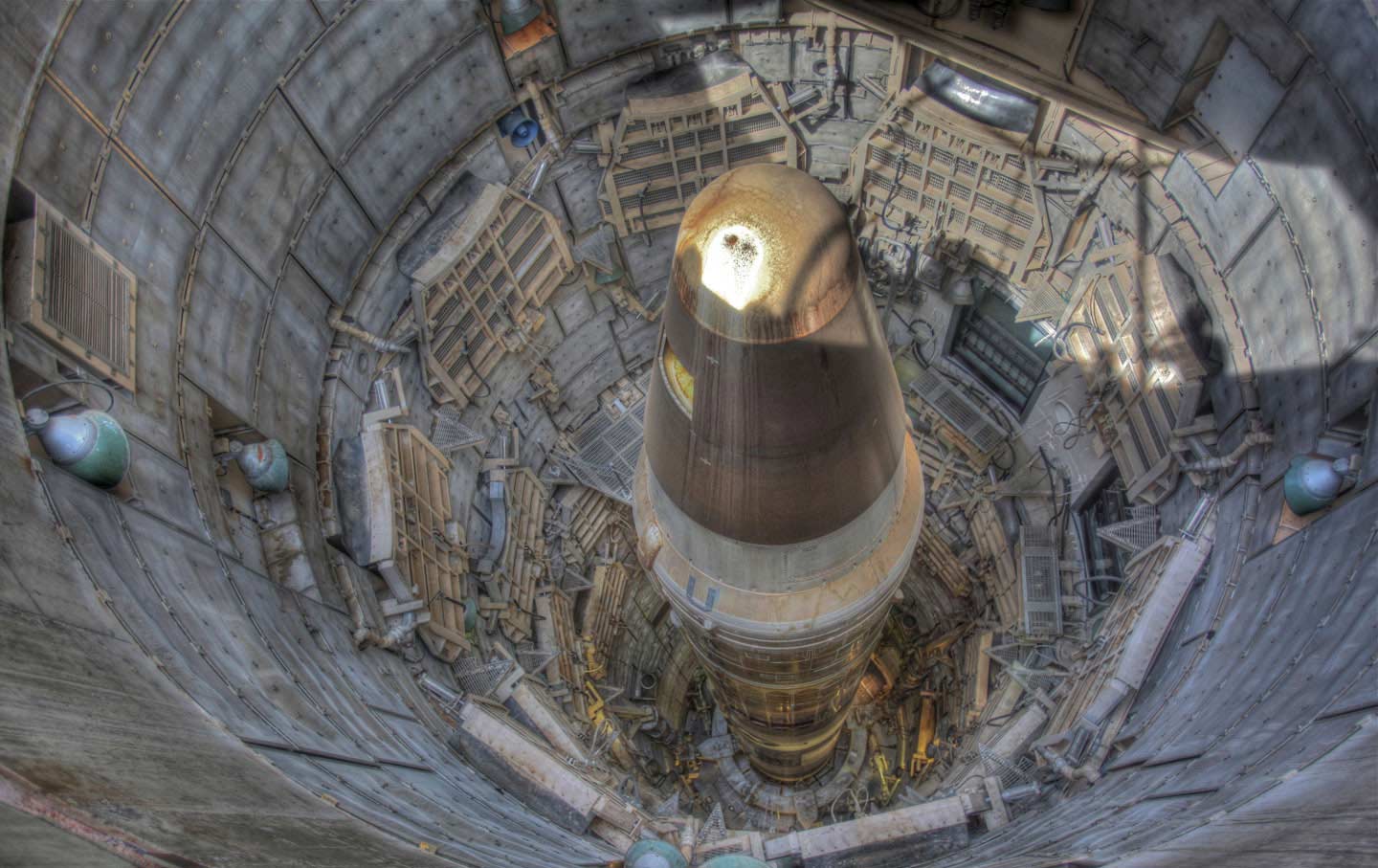
Q&A: Eric Schlosser Q&A: Eric Schlosser
With his 2001 mega-bestseller Fast Food Nation, Eric Schlosser inspired a grassroots food movement that changed the way Americans eat. Command and Control, his new book, exposes a shocking history of accidents and errors in the US nuclear arsenal, including the time a B-52 almost nuked North Carolina. I spoke with Schlosser by telephone on October 27. Mark Hertsgaard: You report that at least 1,200 US nuclear weapons were involved in significant accidents between 1950 and 1968. Two of the most extraordinary accidents took place in North Carolina and Arkansas, right? Eric Schlosser: A single safety switch prevented the detonation of a hydrogen bomb in Faro, North Carolina, in 1961. That type of switch was later discovered to have been defective in dozens of cases. Had the weapon detonated, it could have sent lethal radioactive fallout as far north as Washington, DC, and New York City. On September 18, 1980, a couple of workmen were doing routine maintenance at a Titan II missile silo in Damascus, Arkansas. The single warhead on the Titan II had three times the explosive force of all the bombs used during the Second World War combined—including both atomic bombs. As one of the workers prepared to remove a pressure cap near the top of the missile, the socket fell off his wrench handle. The tool fell about seventy feet, bounced off part of the silo, struck the missile and pierced its metal skin. Thousands of gallons of highly flammable, highly explosive rocket fuel began to fill the silo. Had [the warhead] detonated, the state of Arkansas would have been consumed by firestorms. MH: Can books still spark social change? ES: Absolutely. I do not think in any way that the new technology has made the book obsolete. Even an excellent documentary can’t give you as full an experience of a subject as a book can. MH: Has the Internet helped or hurt a book’s ability to affect society? ES: Take that [secret US government] document describing the North Carolina accident. I had that document for three years. During that time, the only people who saw it were me, my fact-checker and the US government censor. Then I gave it to The Guardian, and it was instantly spread all over the world. The Internet is a way to get spied on, but it’s also a way to get vital public information out. MH: The extraordinary value of Command and Control is in showing how fortunate we have been throughout the nuclear era to avoid catastrophes beyond the intentional ones of Hiroshima and Nagasaki. It seems we’ve been saved by sheer dumb luck as much as anything. ES: Given the many close calls that we’ve had, there’s no simple explanation for why a nuclear weapon has never detonated accidentally in the United States. A great deal of credit must be given to our weapon designers for their technical expertise, and to the military personnel who risked their lives (and sometimes lost them) trying to prevent nuclear catastrophes. But a hell of a lot of good luck was involved, too. And there’s no guarantee that luck will last. Please support our journalism. Get a digital subscription for just $9.50! MH: What can be done to minimize, if not eliminate, the risks of a nuclear weapons accident? ES: I wrote this book to remind people that the danger didn’t vanish along with the Cold War. I’d like to see a vigorous national debate about our nuclear weapons—how many we should have, why we need them, how they might be used. The same sort of activism now directed at climate change should be focused on nuclear weapons worldwide. Global warming and the detonation of nuclear weapons are the two existential threats that mankind faces today. And neither one is inevitable. MH: What’s next after touring for Command and Control? ES: I’m looking forward to being home for a good long time so I can clean my office. You wouldn’t believe what a mess there is. If the government broke in here to try to find my documents, there’d be no way! Read Next: Robert Jervis on Eric Schlosser’s Command and Control.
Dec 30, 2013 / Mark Hertsgaard
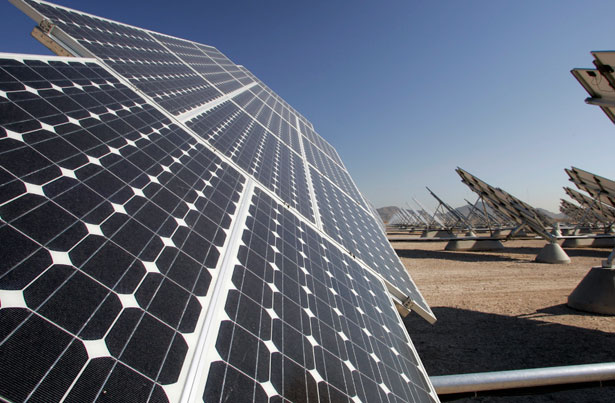
Will Solar Save the Planet? Will Solar Save the Planet?
As the IPCC sounds another alarm about climate change, solar energy supporters believe they have a solution.
Oct 2, 2013 / Mark Hertsgaard
Letters Letters
Big Brother: watching, listening and…; nukes on our mind
Aug 13, 2013 / Our Readers, Mark Hertsgaard, and Terry Tempest Williams
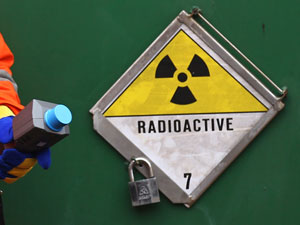
Pandora’s Terrifying Promise: Can Nuclear Power Save the Planet? Pandora’s Terrifying Promise: Can Nuclear Power Save the Planet?
A conversation about a new documentary, its provocative claims—and the facts it leaves out.
Jun 17, 2013 / Feature / Mark Hertsgaard and Terry Tempest Williams
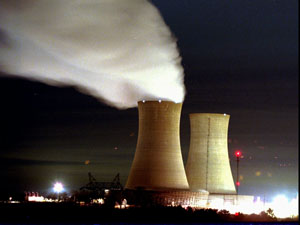
Pandora’s Myths vs. the Facts Pandora’s Myths vs. the Facts
The truth about nuclear energy.
Jun 10, 2013 / Mark Hertsgaard

